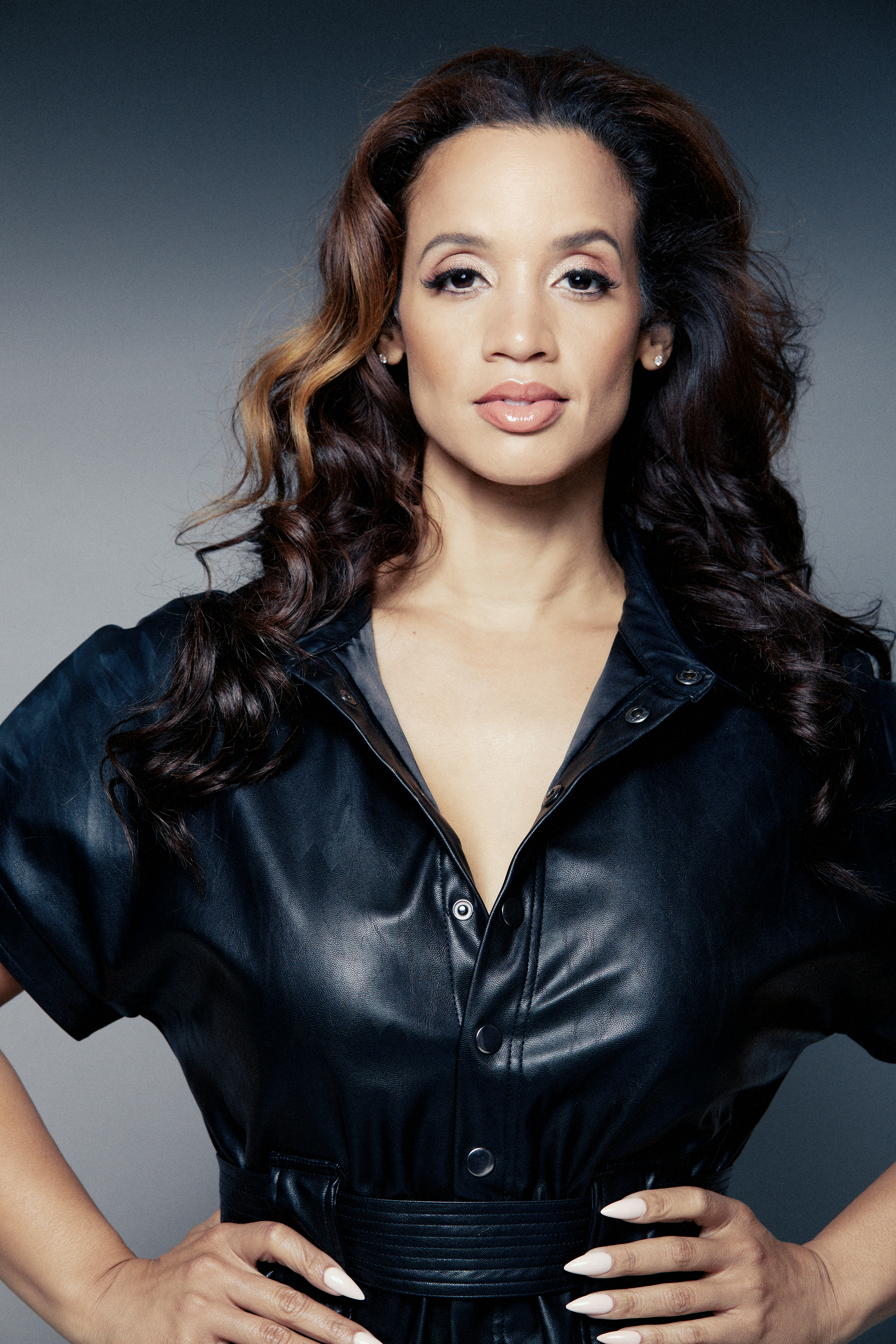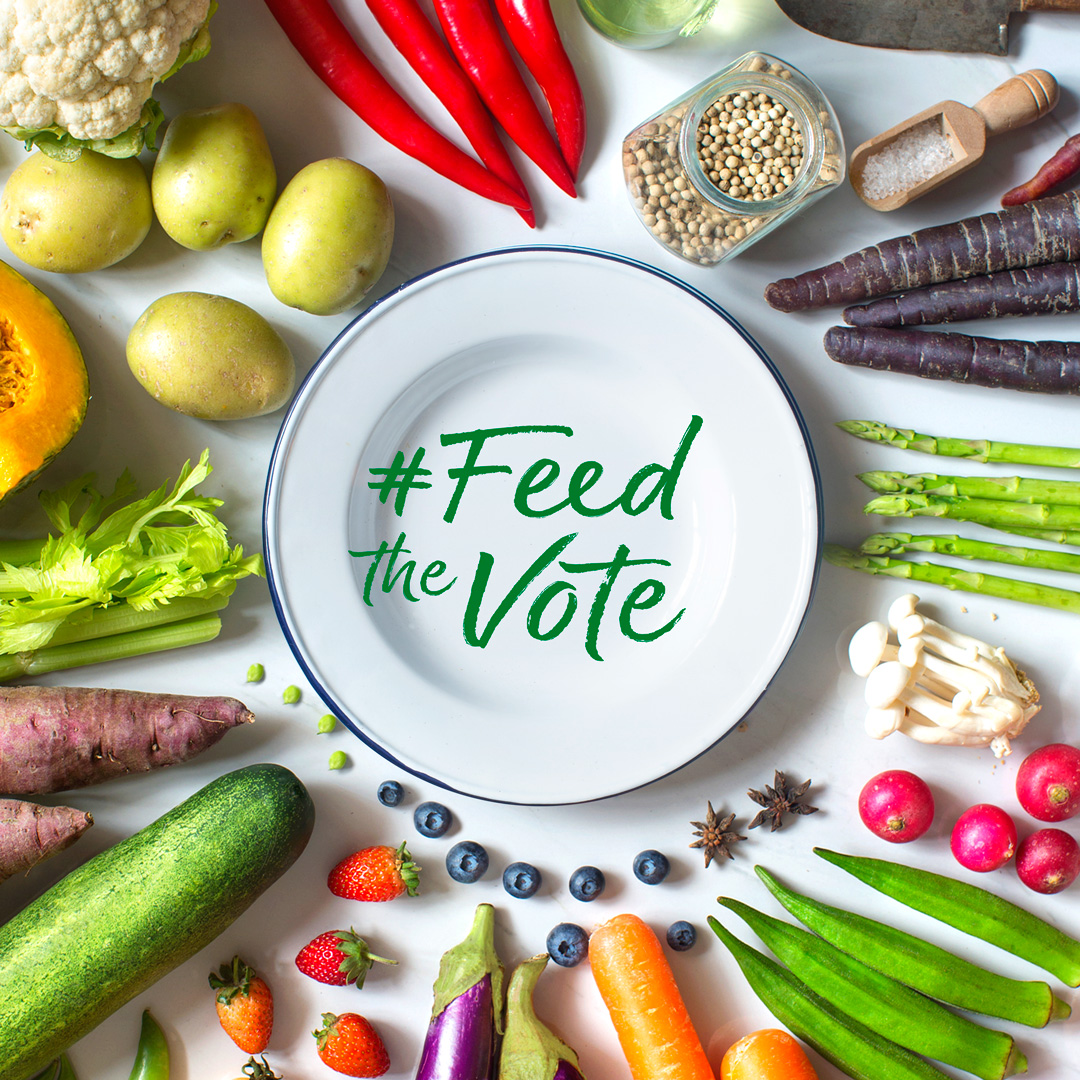
Source: #FeedTheVote / Knorr
Despite the fact that more than 35 million people in the United States struggled with hunger in 2019, according to the United States Department of Agriculture’s latest Household Food Insecurity in the United States report, most of us only think about people having food to put on their plates during the holidays. Coronavirus has heightened awareness of hunger to an extent, but it also increased the crisis already burdening our nation, with estimations from Feeding America reporting more than 54 million people may experience food insecurity this year as a result of the pandemic.
Volunteerism somewhat positions hunger as a community issue, but as Dascha Polanco pointed out in an interview about her work with Knorr, “hunger is a national issue.” As such, the actress has partnered with the food brand on the #FeedTheVote campaign to raise awareness around food insecurity and dietary issues. As part of the initiative, Knorr has also partnered with Feeding America and UnidosUS to register voters so they can be a part of the change that needs to be made to our food system.
Today Instagram feeds will feature empty plates as a reminder that for millions of Americans, there is no food on the table. That is unless we demand our public officials make hunger a priority during this election. Here Polanco talks about her personal connection to food insecurity as an immigrant woman and the ways in which BIPOC communities are most affected by hunger.
MadameNoire (MN): Tell us about the #FeedTheVote initiative and how you’re involved in this campaign?
Dascha Polanco (DP): Well, I think it is important that we understand hunger is a national issue, and I partner with Knorr because I feel that as a by partisan company, the importance is the issues at hand more so than political interest. There’s over 54 million Americans that are going through hunger on a national level. Now, with COVID and the pandemic, it has increased by 30 to 20 percent. There is a lot of information that we have access to that we are not aware of and we don’t realize how much [it] affects us as humanity.
MN: What is food insecurity?
DP: Just to give you a little background about myself, why I can understand it is that food insecurity is not putting food on the table. Like not having the resources of getting food and not only just any food but quality food, nutritious food, that’s what’s important. It’s one thing for us to say, let’s just give food and another to say let’s educate and to provide, and partnering up with programs such as Feeding America, as well as being a part of brands and educating ourselves as consumers and as people that nutrition is where it matters.
When we lack nutrition, we lack education. It causes effects in every bit of our lives—health wise, our communities suffer from more diseases, nutrition is one of the main factors when we speak about insecurity. I come from a background where my mother was on food stamps and I was on SNAP. And the resources to get quality food, to get nutritious food, to educate ourselves was not there. So now we are in the time where it has to change at the ballot box. It has to change with us having the right to not only food, but educate ourselves and become more knowledgeable with it.

Source: #FeedTheVote / Knorr
MN: Why do you think it’s so hard to get everyday people to care about hunger as well as our elected officials?
DP: For the most part we don’t realize how much it’s important as a government issue. The only change that we will see is by us registering to vote. It’s about us exercising our right but, more so importantly, the change has to happen there. When we educate from the perspective of the elected officials, we need to demand what we need. Right? We need to ask those questions.
Knorr has established that the pantries will have and provide access so that people can register to vote and make it easier and spread the information that way. We have websites like Knorr.com/vote and they have all the resources there that will provide us with more information. The USDA website and the FRAC website are all websites we can look up. We must use our power to be resourceful and to become more knowledgeable when it comes to the need of ending hunger.
MN: I know you’ve mentioned how your parents came from the Dominican Republic and your own experience being a teen mom and you not having the financial resources. What was that experience like for you?
DP: I saw this brand Knorr in my life growing up and then you get to partner up with such a brand that is part of your childhood memories and you realize how impactful they are in our community. It just does something for you as a person to know that my parents believe in this product but they also believe in us as a community. And seeing that growing up, and seeing that I had to go with my mom to the food stamp office and it was always a struggle and sometimes there was no food and sometimes we had to eat some things and I’m like wait, why?
We want to be more healthy but we don’t really have the money to be more healthy. You got to buy tuna. You have to buy whatever it is. You have to buy SPAM. You have to buy whatever is available. You have to buy anything that is not as nutritious as you think it is. We don’t have access to what they have now which is vegetable markets and markets where we could go, which I think is great to see how society has changed when it comes to food. But it’s surprising to know statistically how much we still haven’t stopped it.
To me, to hear in America as an immigrant that 54 million Americans are going through hunger and that it is increasing by 20% by 30%. I mean it makes me feel like what are we doing? If we know this, then why are we continuing to allow these numbers to increase. Now is the time. There are a lot of movements and awareness and access to information. We have to register to vote. If we make it easy, where one place takes care of everything. You go to these pantries and Knorr is there and there are so many resources and educational resources, then we should do it.
MN: With election time, do you feel like the concerns of the LatinX community are considered as much when you think about hunger? Hunger, it’s affecting the Black and Latino communities the most. So thinking in general, do you feel the concerns of the Latino community are even heard enough on a national level?
DP: I don’t think they are heard enough and they are not at the ballot box. We have community boards, elected officials, and community members that represent the community and, unfortunately, we don’t realize how important our right to vote is when it comes to going into the food pantry and expressing your experience and what we need. I think there is a misconception within our communities and it’s not because we are not able enough to understand or acquire the knowledge, I think that’s not a priority.
But when we speak about food insecurity and we speak about hunger and kids, children, and families not having the resources to get nutritional food that affects us as a whole. So if it is there, I’m pretty sure we will be able to handle the information and push it forward. But if we don’t understand the effect, and as I get older as I get more experience in the industry, as I read more and educate myself and partner with these brands, I realize there is a lot of information out there that we are not made aware. We are just not. Especially in Harlem, Washington Heights, and Brooklyn, and I grew up and I’m like oh wait, I didn’t know the food pantry—I’m like, I’m pretty much filling my life up with carbs. I remember my mom would get the block cheese, beans, and then milk and eggs. And I’m like I can’t buy any broccoli or spinach. I grew up on that. It used to be white boxes. I grew up on that. It wasn’t that my mom couldn’t provide food for the table, it was more so that we didn’t have the financial means to do it. This is what was allowed for us to get, and you don’t have a farm or garden, especially in New York. So it’s like, you don’t have those resources. Now, we are moving along and we have to continue. We have to now make it a thing of quality and provide places easy for us to go to food pantries and to register to vote. And then you have the right to question elected officials and say look this is what we want as a community and so forth. It’s all related.
MN: I follow you as you have been sharing your wellness journey. What’s that like for you in making that mental shift and making different choices as well as having access?
DP: I feel different. I look back and I feel like I could have done better in school if I had. Luckily, I grew up, culturally, we didn’t really buy stuff outside. We grew up making more home-cooked food, and I see the change now, when I have access to good quality food, vegetables, and I can provide that for my kids. My kids are more educated now. Let’s include vegetables. You know, you can have this or you could also have this and what are the gains you get from that. As my nutritional journey has become more doable financially—and I am so blessed and thankful—it’s my duty to spread that as much as I can and give back. Because it’s all reciprocal and it’s all a circle that we’re apart of.
I do exercise my right to vote but I also align myself with these brands because of that. Because I understand how important it is. And I view things differently. I feel more aware. I feel more strong. You know, I don’t get as sick. And right now, we have to keep our immunity up. When we think about the pandemic and we think about hunger—if we can now take in the nutrition that we need to consume the vitamins we need from the proper food, then we cannot function. And unless you have someone leading us, because I’m not a politician. But I want someone in my forefront that’s guiding and leading for my community for the interest of it. And that’s all.









